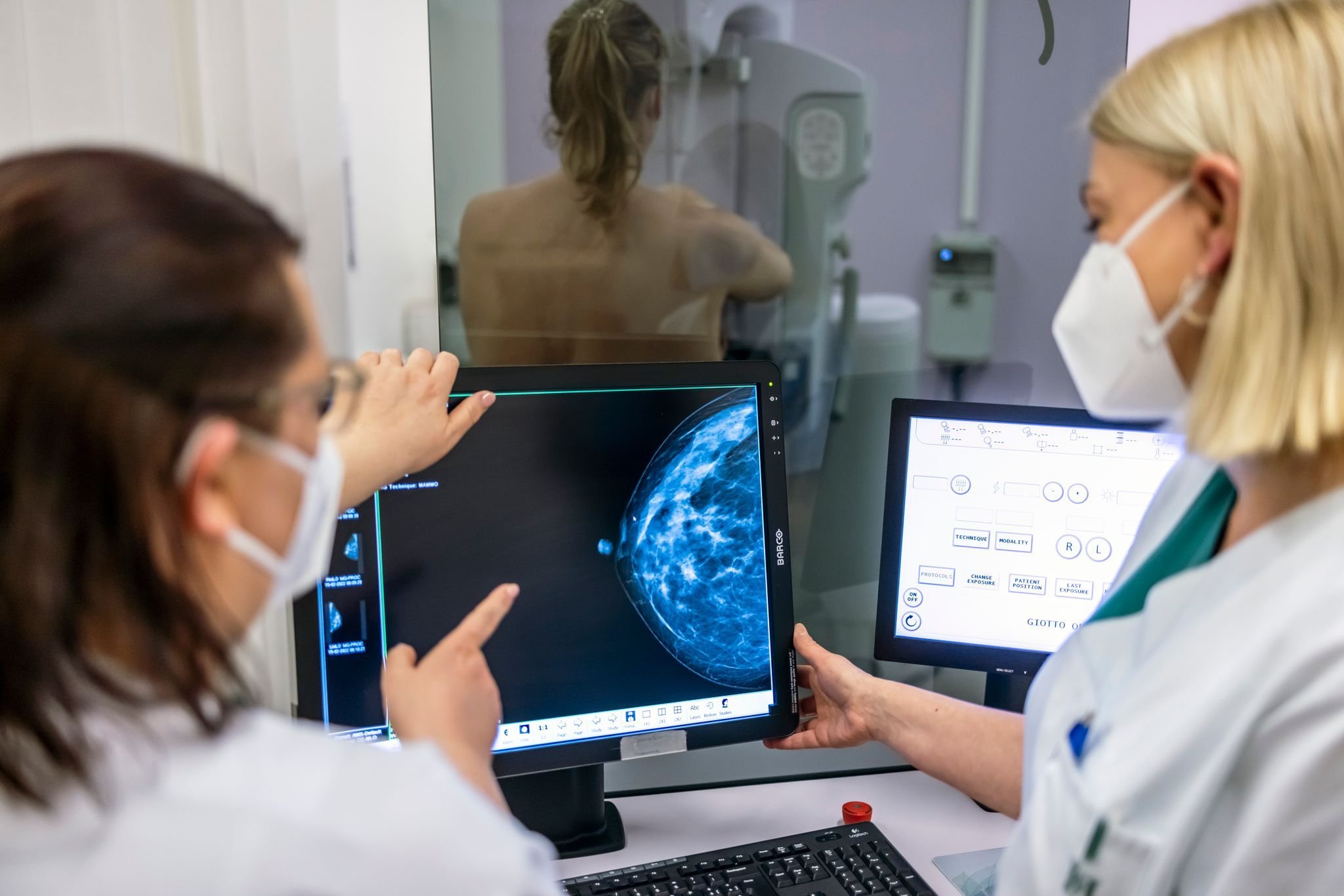the essentials Farmers from Rural Coordination from several departments are currently occupying the entrance to the Danone Gers factory, in Villecomtal-sur-Arros, where they have dumped the contents of several skips.
Around fifteen tractors with tippers arrived in front of the Danone factory at 2:15 p.m. this Tuesday, November 26 in Villecomtal-sur-Arros, on the borders of Gers and Hautes-Pyrénées. Under the banner of Rural Coordination (Gers, Hautes-Pyrénées, Landes and Lot-et-Garonne), angry farmers empty their bins in front of the plant-based milk production site.
The Rural Coordination machines landed shortly after 2 p.m. on the Danone site. DDM – SD
“It’s a continuation of February 2024 where we kindly left a skip at the entrance […] There was a verbal commitment to work together to create a French plant-based milk industry. According to the latest reports from cooperatives and the State, nothing has been done: Danone does not want it, assures Lionel Candelon, Gers president of Coordination Rurale Occitanie. Our Danone factory in the Gers makes a plant-based milk with cereals imported from Ukraine which pass through Denmark and the Netherlands, then transformed into oat flakes in Spain before coming here to Villecomtal to produce plant-based milk. Now he’s had enough, enough is enough!”
Current action of the Rural Coordination in Villecomtal-sur-Arros in the #Gers on the Danone production site (vegetable milk)?⚠️ #AngryFarmers pic.twitter.com/rHqCCW2KkB
— La Dépêche 32 (@ladepeche_32) November 26, 2024
The mobilized farmers are considering blocking the factory for several days, unless they are dislodged beforehand, as in Colomiers last Friday.
The flag of the European Union was trampled in front of the barriers of the industrial site while other skips “will arrive this evening and tomorrow morning”, announced the Rural Coordination. The police are present on site.

**How does this protest reflect the broader tensions between traditional dairy farming and the rise of plant-based alternatives in the French agricultural sector, and what potential long-term impacts could this conflict have on both industries?**
## Interview: Danone Protest in Villecomtal-sur-Arros
**Introduction**
Welcome to World Today News. Today, we’ll be discussing the ongoing protest by farmers from Rural Coordination at the Danone Gers factory in Villecomtal-sur-Arros. Joining us today are two guests: Lionel Candelon, Gers president of Coordination Rurale Occitanie, and [Name of representative from Danone or a relevant industry expert].
**Section 1: The Grievances of Farmers**
* **Lionel Candelon, thank you for joining us. Can you elaborate on the core issues driving this protest? What specifically led to the decision to take such direct action?**
* **What are the farmers’ desired outcomes from this protest? What would constitute a successful resolution in your view?**
* **This isn’t the first time Rural Coordination has expressed concerns about Danone’s practices. Can you describe the history of dialog between the farmers and Danone, and where communication has broken down?**
**Section 2: Danone’s Perspective**
* **[Danone representative or industry expert], how does Danone respond to the farmers’ allegations regarding the sourcing of ingredients for their plant-based milk?**
* **What measures, if any, has Danone taken to address the farmers’ concerns about the development of a French plant-based milk industry?**
* **How does Danone view the farmers’ actions, and what is the company’s stance on their demands?**
**Section 3: The Broader Context**
* **This protest highlights the complex issues surrounding the agricultural sector and plant-based alternatives. What are the wider implications of this debate for the future of food production in France and beyond?**
* **Some argue that plant-based milk production is necessary to address environmental concerns and dietary preferences. How can the industry move forward in a way that balances the interests of farmers, consumers, and the environment?**
* **This protest is gaining attention both nationally and internationally. What lessons can be learned from this situation about the importance of engaging with local communities and addressing their economic concerns?**
**Section 4: Moving Forward**
* **What are the next steps for both sides in this dispute? What opportunities exist for finding common ground and reaching a mutually acceptable solution?**
* **What message do you hope this protest sends to policymakers and the wider public about the challenges facing the agricultural sector?**
**Conclusion**
Thank you to both of our guests for sharing their perspectives on this important issue. This discussion underscores the complex challenges and opportunities facing the agricultural sector in a rapidly changing world.
We encourage our viewers to stay informed, engage in thoughtful dialog, and consider the various stakeholders involved in these issues.
